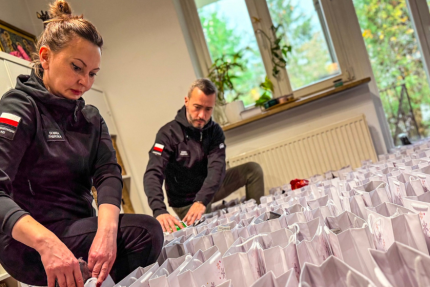In front of one of the houses in Bodzanów lies a book. Tolstoy. War and Peace. The flood read it. Leafed through it back and forth with its wet hands. It tossed it out of someone’s home along with the furniture, pots, and the carefully arranged predictability of daily life.
“There’s nothing left to save. We have to start over from scratch.”
“But how?”
“I don’t know. I won’t get a second life, and this one won’t be enough.”
Containers roll by. Everything goes to the waste center. Memories, family heirlooms, shattered mirrors, and worn-out armchairs. A grand relocation of soaked memories to the trash. What’s left are aching walls and cracked plaster.
“For now, there’s work, there’s emotion, sadness, anger, drying walls, and cleaning up drenched belongings. When it’s all over, that’s when the real tragedy will begin.”
“What will happen?”
“Alcohol, drunkenness. Another flood. Drowning sorrows.”
“The paper mill’s flooded. It’s closed. By the time they build new machines and restart production, we’ll die of hunger here. Half the village worked there.”
“Maybe they’ll rebuild it faster.”
“Soon, the important people will change out of their military shirts and into suits. And that’ll be the sign that we’re on our own. Come back in two or three months. Tell the ones in the white van that right now we have everything. But let them come back later. Maybe then we’ll be starving. Maybe only then we’ll appreciate that someone remembers us.”
– Mateusz Gasiński



